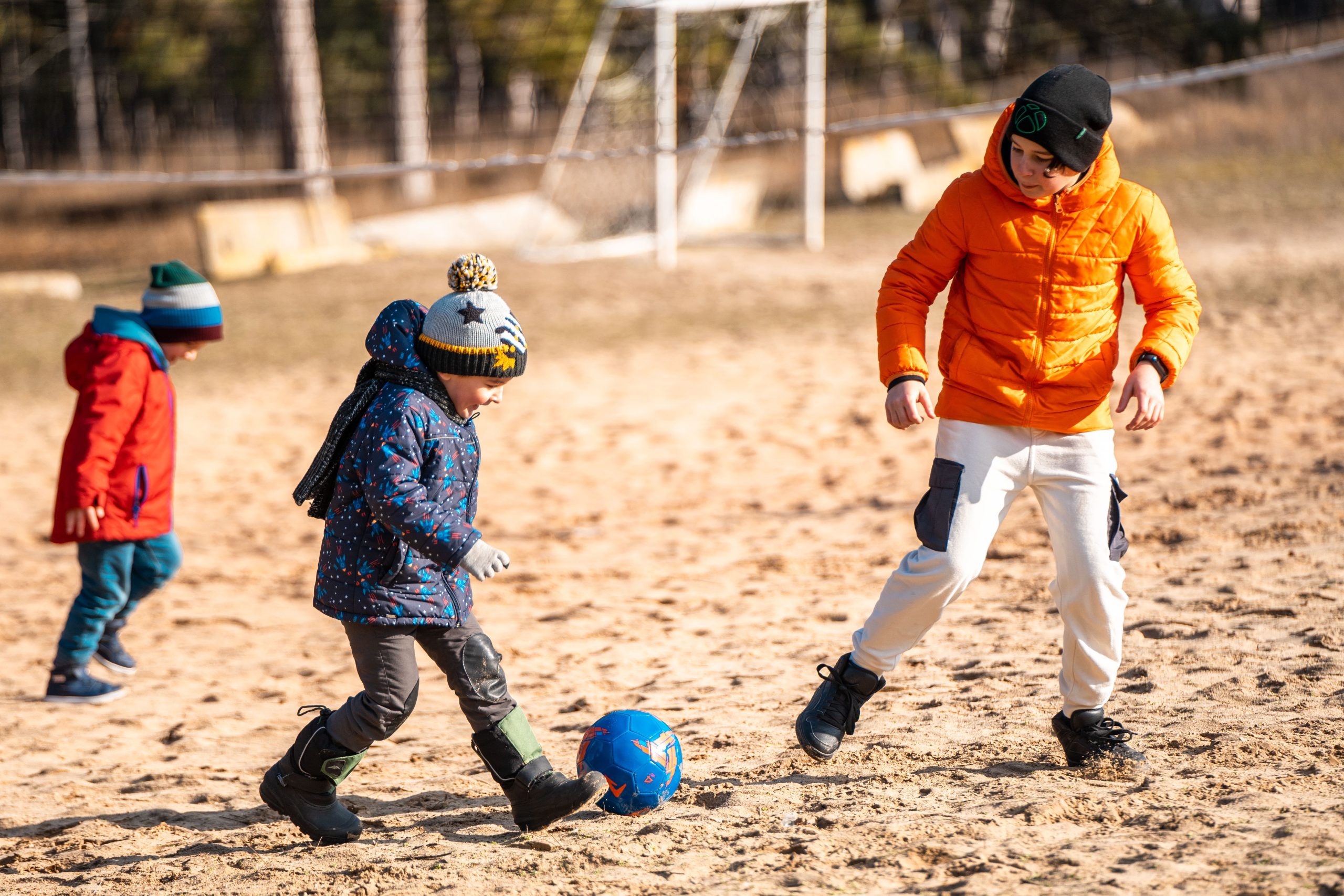The Link Between Play and Language
Play is one of the most important ways that children learn about the world. When children play with adults and other children, they learn how to get along with others, how to problem solve, and how to communicate and use language effectively.
Communication is one of the most important skills that children learn while they play.
Joining in Play with your Child
Some children find it easy to join a group of children. When they see another child, or a group of children playing something that looks like fun, they either just sit down and join in, or ask simple questions such as, “What are you doing?”, or “Can I play?”.
For other children, joining in a game can be very challenging. These children might play alone or use inappropriate methods of joining in, such as grabbing toys, or hitting other children in order to get their attention. None of these strategies are appropriate. The child who grabs or hits will probably be seen as a “trouble maker” and is unlikely to be welcomed into the play group. A child who does not join in, but stands alone on the sidelines might be very shy. However, by not joining the group, they are missing out on the important skills that group play can teach.
Like other social skills, the skill of “joining in play” is one that some children can be taught – step by step.
Helping Your Child Learn How to Join in Play
As a parent, you can help your child learn how to join in play using the following ideas:
1. Talk about it: Start by talking to your child about the specific skill. Ask questions like:
- “How can you ask a friend to play? Show me.”
- “How does it feel when you play with someone else?”
2. Teach: You can teach your child who struggles to join in the play about the appropriate ways to join in play. One way is do so is through the use of a social narrative or social story
The goal of a social story is to:
- describe social situations that are difficult for your child
- increase his or her understanding of this situation
- provide suggestions about what to do in the situation (expected social behaviours)
- give your child some perspective or understanding on the thoughts, emotions, and behaviours of others.
*It is best to use the child’s social story when they are calm and focused, not when the challenging situation is actually happening. Try reading and talking about the story daily (perhaps at the beginning of the day or before difficult social situations may occur (i.e. before recess)) so that your child is able to really understand and be reminded of the expectations. For more information on social stories, go to author Carol Gray’s website: What is a Social Story?
3. Role-Playing:
- Role-playing consists of acting out various social interactions that children would typically encounter. Puppets or other toys can also be used as “actors” in the role-play.
- Role playing teaches children the actual words they can say and the things they can do in specific situations. It also gives children an opportunity to practice these new skills with their peers.
- In the beginning, you should play all the ‘parts’ to show your child what they can do or say in certain situations.
- Try to act out situations with both positive and negative responses, as this will help your child understand that other children are not always willing to share or play with them (i.e. when another child says “no” or is unwilling to share their toys.)
4. Reinforce:
- Tell your child that you will be watching for this skill during the week. Reinforce your child when you see them joining in play and remember to label the behaviour that you want to see them using.
- Talk about the skill for a few minutes each day so that it is fresh in your child’s mind. This also helps them understand the importance of this social skill.
- Teaching your child how to join in play can be challenging and takes time. Remember to look for your child using the skill and reinforce them for doing so, as much as possible. By encouraging your child, they will become more comfortable joining in play with other children.
Resources:
Tips to Encourage Pretend Play in Children with Social Communication Difficulties
July 2023

